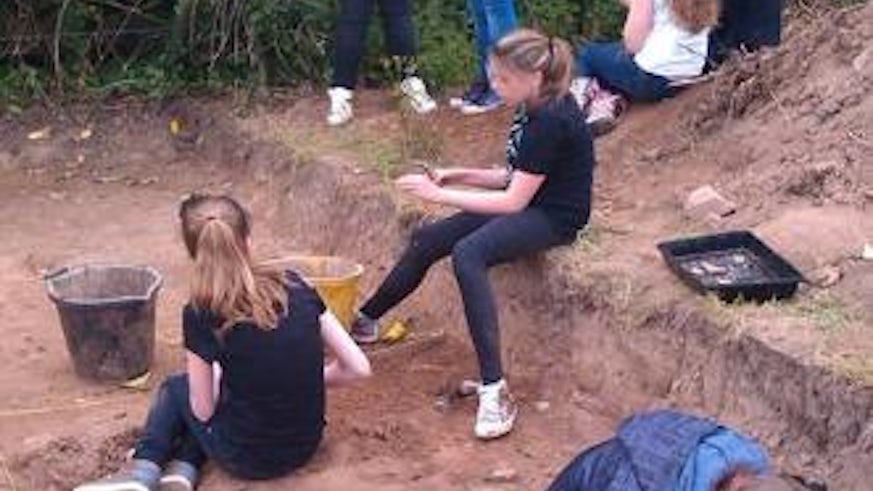Welsh big dig wins top UK award
12 June 2014

A Welsh archaeology and heritage project has won a top UK award. The CAER heritage project brought 1,000 people together to explore and excavate the ancient Iron Age Caer hill fort in the heart of a Cardiff suburb in 2013.
The project's co-director, Dr Dave Wyatt, of Cardiff University, walked away with both the national £2,500 prize plus an award for the best History and Heritage project at the National Coordinating Centre for Public Engagement awards in London this afternoon (Weds). The CAER project beat off more than 200 high calibre entries from across the UK.
Dave Wyatt said: "It's amazing to have won this national UK award. From the outset, the CAER Heritage Project's objective has been to work with the people of Caerau and Ely to explore the area's fascinating the past and make it relevant to the present. The project has therefore always been totally committed to the co-production of knowledge - it puts local people at the heart of archaeological and historical research - while developing educational opportunities and challenging the unfounded stereotypes ascribed to this part of Cardiff in the process.
"The CAER project would therefore not exist if it wasn't for the amazing involvement, expertise and support of our community partners at Action in Caerau Ely (ACE), local secondary schools, especially the Western Federation schools, and of course the residents of Caerau and Ely themselves. This award is a testament to their warmth, talent and amazing community spirit. Let's hope this helps to put Caerau and Ely back where they belong - central to the identity, history and cultural life of the Cardiff area."

The competition forms part of Universities Week, a week-long celebration of public engagement with research that is taking place across the UK from the 9th June. And the win comes ahead of this year's CAER Heritage Challenge. Organisers hope 2,000 people will join them to dig and explore the hill fort for a second time this summer, from 30 June until 25 July.
The project – run in partnership between Cardiff University and Action in Caerau and Ely [ACE] - began exploring the prehistoric past of the Caerau iron age hillfort in 2011. Local schools and members of the community from all backgrounds helped unearth five large Iron age roundhouses, a roadway and extensive evidence of past communities from Iron age and Roman pottery and a beautiful Iron Age glass bead. More than 100 local people were actively involved in the 2013 excavation under the direction of archaeologists from Cardiff University, with 1,000 people visiting the excavations during the month-long dig.
John Womersley, Public Engagement Champion for Research Councils UK, said "It is great to see so many examples of the valued contributions that UK researchers make to society. When people think of public engagement, what usually comes to mind is the need for researchers to share their findings. Of course that's hugely important, but the entries to this competition show a much richer range of two-way engagement that can bring much deeper benefits both to research and society."
Nicola Dandridge, Chief Executive, Universities UK, said "The NCCPE competition has provided an excellent vehicle for universities' engagement with the public to be recognised during Universities Week, which this year aims to inspire the public about world-leading research taking place in higher education. The standard and sheer volume of entries received is a reflection of the increasing trend for UK researchers and the public to work together. Public engagement is important to the success of the higher education sector and as part of that the NCCPE plays a pivotal role in supporting universities to engage with the public."
Paul Manners, Director of the NCCPE said '"As part of our work to inspire universities to improve their support for engagement, the competition aimed to find and celebrate excellent practice from across the UK. We have been delighted by the high quality of entries, which has raised the bar on what can be achieved through an engaged approach to research. The culture of the academy is changing, as researchers recognise the value of engagement, and we hope the competition provides an opportunity to inspire more people to get involved."